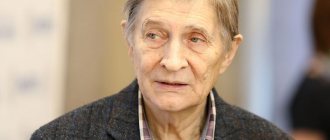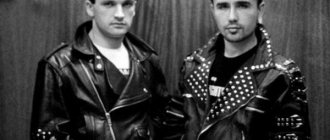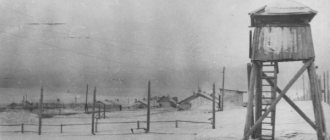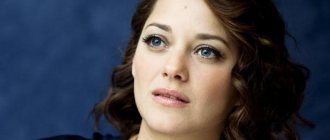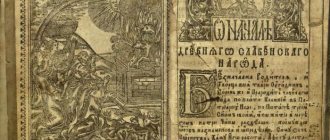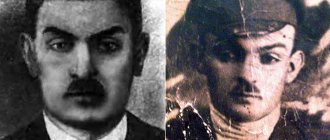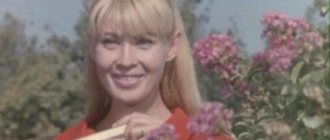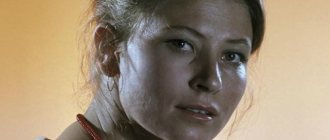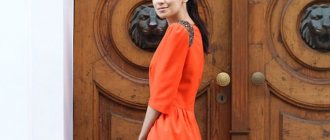Childhood and youth
Robert Rozhdestvensky, whose biography is today’s topic, was born on June 20, 1932. The birthplace of the genius was an unremarkable Altai village in Kosikha, 65 km from the city of Barnaul. Robert Stanislavovich Petkevich (his father's surname) was named after the revolutionary Robert Robert Eiche.
Mom worked as a teacher and at the same time received a medical education. His father, a Pole by nationality, served in the NKVD.
However, the parents were married for only a short time, and when the future poet was 5 years old, they divorced. This, of course, hit the child’s psyche painfully.
Most of young Robert's childhood memories were preserved about Omsk, where his mother moved with her child after the divorce.
The heavy burden of war
Soon the war began. Stanislav was drafted into the Red Army, and his mother was taken as a medic. Little Robert remained in the care of his grandmother, who died before the end of the war. Robert remained in the care of his mother's sister. However, soon Vera Pavlovna, the mother of the future poet, placed the boy in an orphanage while she was at the front. At first she wanted to take him with her to the front, registering him as the son of the regiment, but on the way she changed this decision because she was afraid for the boy’s life. Robert remembers those times - letters from his parents, a flower bed under the school where potatoes were planted, hope for the return of his relatives... To escape from the hated orphanage, he and his friend entered a military school, but did not finish it.
His own father, Stanislav, died in 1945.
After the end of the war, Vera came for her son with her new husband. He turned out to be a fellow soldier of a woman with the poetic surname Rozhdestvensky, who suited Robert perfectly. His stepfather managed to replace his own father. Soon Vera gave birth to her husband’s son Ivan.
The family moved often. Immediately after the end of the war, they settled in Koenigsberg, later moved to Leningrad, and in 1948 they decided to settle in Petrozavodsk, and later moved to Karelia. Robert Rozhdestvensky, whose biography he wrote in his own hand when he was young, makes little mention of this period.
Childhood and youth
The future poet Robert Ivanovich Rozhdestvensky, whose name was known to everyone in the Soviet Union, was born in the Altai village of Kosikha in June 1932. At birth the boy was named differently - Robert Stanislavovich Petkevich. His father Stanislav Petkevich is a Pole by nationality, an NKVD officer. Before the war, mother Vera Fedorova worked as the director of a local school and at the same time studied at a medical university.
Robert Rozhdestvensky with his mother Vera Pavlovna
Published by Victor Ast Saturday, August 16, 2014
Robert Rozhdestvensky in childhood and his mother
Petkevich Jr. received his name, atypical for a Siberian village, in honor of the revolutionary Robert Eikhe. When the child was 5 years old, the parents divorced. Soon the war began. In its whirlwind, both Stanislav Petkevich, drafted into the ranks of the Red Army, and Vera, mobilized as a medic to the front, swirled.
Robert's father died in 1945 in Latvia, where he was buried in a mass grave. The first verse entitled “My dad goes on a hike with a rifle…”, written by Rozhdestvensky as a child, is dedicated to him. The work was published in the Omskaya Pravda newspaper in July 1941.
Documentary film “Robert Rozhdestvensky. Don't think down on seconds."
After his parents were mobilized, Robert stayed with his grandmother. In 1943, she died, and her mother sent her son to an orphanage. The woman was able to take it back after the end of the war in 1945. Vera Pavlovna came for Robert with her new husband, fellow soldier Ivan Rozhdestvensky.
Robert received the middle name and surname of his stepfather, who managed to replace the boy’s own father. Soon he had a half-brother, Ivan Rozhdestvensky. At the end of the war, the family lived for some time in Koenigsberg, but then moved to Leningrad. In 1948, we moved again - to Petrozavodsk.
Rozhdestvensky's student life
After graduating from school, 18-year-old Robert tried to enter the Moscow Literary Institute, but failed the exams. The poet himself admitted in his biography that, taking with him documents and a stack of poems, he enthusiastically went to the exams, but was not accepted due to “creative failure.” Re-reading his poems years later, Robert admitted the truth of these words - “it was quiet horror!”
He studied for a year in Karelia, actively involved in sports. At this moment, Robert decided that poetry was not for him. However, talent took its toll, and he again made an attempt to enter the desired institute - and did!
In 1956, the young poet graduated from the Moscow Literary Institute.
During his studies, Robert himself writes that he did not have many friends. The closest of them was the merry fellow Vladimir Morozov, a straightforward and talented man, but too sociable and prone to drinking. His life was tragically cut short in just the 25th year, when the life of the young poet was just beginning to improve... Robert then lived in Chisinau.
The fate of Robert Rozhdestvensky was much more successful. This was facilitated not only by talent, but also by decency and kindness, which were inherent in genius. There were many capable poets in the USSR, but there were only a few truly good and talented people.
Marriage and family of the poet
At the institute, the poet met his first and only wife, Alla Kireeva. The girl was scolded for smoking in an educational institution, the poet took a closer look - and immediately fell in love! A literary critic by profession, Alla lived in a happy marriage with Robert for 41 years. The woman says that memories of past happiness resonate in her heart with pain to this day. She recalls how quickly Robert became friends with her parents, especially her mother, who always took his side when the couple had disagreements.
According to the poet’s widow, while studying at the institute, Robka was a somewhat detached and withdrawn person. He did not participate in literary circles formed by aspiring poets, and did not like performing on stage.
Meanwhile, a certain detachment and mystery attracted girls to him. Alla recalls that she often heard from students: “Girls, I fell in love with Rozhdestvensky!” Meanwhile, Alla herself was not impressed by the poet, although she immediately noted his expressive eyes, gentle and attractive. Alla dated Leonid, a student at the same Moscow Institute, for about a year, and was never seen in Robert’s company by classmates. Friends recall that immediately after the end of the lectures, Lenya and Alla ran to each other from different ends of the corridor and walked for a long time, talking about something of their own.
No one could have thought that Robert Rozhdestvensky, whose personal life remained a secret, would suddenly marry Alla, once - and for the rest of his life!
We coincided with you, coincided...
Robert and Alla met at the Literary Institute. Rozhdestvensky transferred from the Faculty of Philology of Karelian University. Alla remembers him as a shy provincial, who stands against the backdrop of liberated young poets and prose writers. He was distinguished by kindness and modesty. Moreover, it was literally filled with poetry,
There were one hundred and twenty boys and girls in the entire institute, so Alla had enough male attention. Robert stood out among everyone with his intelligent and attentive gaze. Basically, students “looked not at others, but inside themselves - how to get published, how to be liked,” recalls Kireeva. They were studying in the same course, and then in an instant something happened. “Immediately and for life.”
Lifelong love
The family life of Robert and Alla was filled with warmth and comfort, undying love. They were so different - Alla is an excellent literary critic and a rather harsh person who loves to speak the truth to his face. She speaks her mind with a strength and courage that is admirable. Robert is a man of fine spiritual organization, calm. Nevertheless, they lived in a happy marriage for 41 years and never regretted their choice... It was to his Alla that the poet dedicated poems about love, which formed the basis of immortal songs that today belong to the classics of the genre. What is his “Echo” worth? The greatest thing that Robert Rozhdestvensky valued was family.
In 1957, immediately after graduating from the institute, the couple had a daughter, Ekaterina, who is currently engaged in translations and the art of photography. Her collection of pictures with popular stars is known to everyone. The daughter of Robert Rozhdestvensky is married and has three children.
In 1970, Ksenia was born. Currently she is actively involved in journalism in the field of cinema and literature. Alla says that her daughter writes incredibly a lot and very well, but the woman often uses pseudonyms. Afraid of dropping his name in case of unsuccessful publication.
Creativity and success
The poet Robert Rozhdestvensky has been writing since childhood. His first poem was dedicated to his own father and was called “My dad goes on a hike with a rifle...” and was published in the magazine. Difficult war years followed. But Robert continued to write, thanks to his teacher, he was published in the newspaper again, and they even paid a fee - about 13 rubles. Then the inspired boy brought this money to school and donated it to the Defense Fund.
Due to the work of his stepfather, whom Robert Rozhdestvensky calls father in his biography, he had to move often. The young poet visited many cities, changed schools and surroundings. Continuing to write poetry, Robka did not send them anywhere, fearing refusal to publish them, but he often read his creations at school evenings. Only in 1950, several of his poems, written with an adult, firm hand, were published in the newspaper “At the Turnover”.
During his years of study at the institute, Rozhdestvensky accumulated many poems, which were published in 1955. The collection is called “Flags of Spring” and was published in Karelia. A year later, Robert's poem “My Love” is published.
Brief biography of Rozhdestvensky
Robert Ivanovich RozhdestvenskyRobert Ivanovich Rozhdestvensky is a Russian poet and representative of the era of the “sixties”. This is the author of poems that later became popular songs. At birth, the poet had a different surname and patronymic - Stanislavovich Petkevich. Robert was born on June 20, 1932 in the village of Koshikha. His father worked in the OGPU, and his mother held the position of director of a rural school and was a military doctor. Since 1934, Robert lived in Omsk. When the war began, my mother went to the front. The boy stayed with his grandmother. At this time, he wrote a poem entitled “My dad goes on a hike with a rifle...”. When Robert was five years old, his father divorced his mother. In 1943, the boy entered the military music school. When his grandmother died, he lived with his aunt. In 1944, the mother wanted to take her son to the war, but then she sent him to a children's reception center. In 1945, Robert's mother remarried. The boy was given a new surname and patronymic. My mother and stepfather served in Keninsberg. They took their son with them. After the end of hostilities, the family moved to Leningrad, and then to Petrozavodsk. In 1950, Robert wanted to become a student at the Gorky Literary Institute. He failed, so the young man studied at the Faculty of History and Philology of the University in Petrozavodsk. At this time, the publishing house “At the Frontier” published the first poems of the young poet. In 1951, Robert nevertheless entered the literary institute, where he studied for 5 years. During his studies, Rozhdestvensky wrote poetry and poems. These include “Flags of Spring”, “My Love”, “Test”. When the young man was in practice in Altai, he met Sasha Flyarkovsky, an aspiring composer. Together they created the song “Your Window.” In the spring of 1963, Rozhdestvensky attended Nikita Khrushchev’s meeting with the intelligentsia. The statesman did not like the poem "Yes, boys." Therefore, in the future the poet was not invited anywhere and for a while they forgot about him. Moreover, when party leader Ivan Kapitonov did not like the verse “Morning,” Rozhdestvensky left Moscow. He moved to Kyrgyzstan. In 1966, the songwriter was awarded the Golden Crown award. In 1970, Rozhdestvensky was the host of the television program “Documentary Screen”. In 1979 he was awarded the State Prize for the poem “210 Steps”. Rozhdestvensky was a member of the jury at the Cannes Film Festival several times. In 1990, doctors gave Robert a terrible diagnosis - a brain tumor. He underwent a successful operation in France. Rozhdestvensky is a talented poet, whose work reflects the richness of his inner world. Songs that have become famous were created based on the poems of Robert Ivanovich. These are “Clouds”, “City of Childhood”, “Sunday Walk”, “Song about a Distant Homeland”. Listeners also like the song “Letter”, “There, behind the clouds”, “I won’t forget you”, “Only for you”. Rozhdestvensky's wife was Alla Kireeva, an artist and literary critic. The family had two daughters - Ekaterina and Ksenia. Robert Ivanovich Rozhdestvensky died on August 19, 1994 in Moscow. The cause of death was heart attack. The poet was buried at the Peredelkinskoye cemetery.
New on the site: Brief biography of Anna German
Brief biography of Bach
Brief biography of Lomonosov
Brief biography of Mechnikov
Brief biography of Wagner
The best songs of the USSR
In 1955, Rozhdestvensky’s first song, “Your Window,” was written in collaboration with composer Alexander Flyarkovsky. In general, in the USSR he was a famous songwriter. His works were known and loved by everyone. Both lyrical and military poems came from the poet’s pen, and the music for them was written by famous composers Saulsky, Tukhmanov, Babajanyan, Khrennikov and others. Robert Rozhdestvensky, whose biography includes hundreds of poems, literally gushes with ideas.
Along with such famous poets as Akhmadullina, Voznesensky, Yevtushenko, he wrote with talent and openness, but at the same time had a unique ability to sense time. Robert wrote on topics relevant to the whole country, although the themes of his poems were different - war, politics, love. The works of Robert Rozhdestvensky were heard in such famous films as “Carnival”, “17 Moments of Spring”, “The Elusive Avengers”. They were performed by the most famous people - Kobzon, Gverdtsiteli, Leshchenko, Anna German, Senchina.
Robert Rozhdestvensky wrote for children. These are funny and mischievous poems, simple, understandable to each of us who remembers being a child.
Episodes of life
The first song based on Rozhdestvensky’s poems was released after the poet met composer Alexander Flyarkovsky during practice in Altai. It was the song “Your Window,” written for the competition. When Rozhdestvensky became a songwriter in the early 70s, not all of his friends approved of it. At that time, the title of “songwriter” was considered inappropriate for a real poet, and Yevtushenko even wrote a letter to Rozhdestvensky about this, which seriously upset the poet.
The grave of R. Rozhdestvensky at the Peredelkinskoye cemetery
Criticisms and limitations
Despite his popularity and undoubted talent, in 1960 Robert wrote the poem “Morning,” which categorically did not please the Secretary of the CPSU Central Committee Kapitonov, who called it “decadent.”
“...a person dies in the end if he hides his illness...”
After such unflattering criticism, Robert was no longer published and invited to speak. He had a hard time with these restrictions, which significantly affected his health. After Khrushchev's resignation they were removed, but an unpleasant aftertaste remained. Robert Rozhdestvensky, whose poems breathe with talent, did not deserve such a fate.
Social activity of Rozhdestvensky
In 1972, Rozhdestvensky received the Lenin Komsomol Prize, and in 1978 he gave a speech at the CPSU Central Committee. This act caused a violent reaction from his wife, who was categorically against the party. Soon the poet himself became disillusioned with her.
His social activity is connected with an attempt to convey to people the work of Tsvetaeva, Mayakovsky and other talents. It was Rozhdestvensky who contributed to the world seeing Vysotsky’s collection “Nerve”. Marina Vladi, the widow of the famous singer, then called Robert and thanked him for the fact that it was he who was in charge of the collection, and not Yevtushenko or Voznesensky. They say they didn’t consider her Volodya a real poet...
Many believe that there was constant rivalry between long-time friends Voznesensky, Rozhdestvensky and Yevtushenko. Robert Rozhdestvensky, whose biography and character are best known to his wife, understood that each poet has his own style and his own capabilities. Robka, unlike Evgeniy and Andrey, never pursued fame, Alla is sure. Although it is worth admitting that there was still rivalry between Yevtushenko and Rozhdestvensky - both poetic and human.
“Sometimes I think it’s good that Robka left so early and didn’t have time to be funny.”
Robert Rozhdestvensky
Details Category: Poets Published: 04/19/2017 10:34 Author: Roman
Robert Rozhdestvensky
Born: June 20, 1932 Died: August 19, 1994 (age 62)
Robert Ivanovich Rozhdestvensky is a Soviet poet, translator, laureate of the Lenin Komsomol Prize and the USSR State Prize.
The name was given in honor of Robert Eiche. Brother - Ivan Ivanovich Rozhdestvensky. Father - Stanislav Nikodimovich Petkevich, a Pole by nationality, worked in the OGPU - NKVD. Divorced Robert's mother when he was five years old. In 1941 he was drafted into the Red Army. With the rank of lieutenant, he commanded a platoon of the 257th separate engineer battalion of the 123rd Infantry Division. He died in battle in Latvia on February 22, 1945, was buried “250 m south of the village of Mashen, Temerovsky district, Latvian SSR”, and reburied in a mass grave in the village of “Slampe”, Tukumsky district.
Mother Vera Pavlovna Fedorova (1913-2001) before the war was the director of a rural elementary school, and at the same time studied at a medical institute.
Since 1934, Robert has lived with his parents and grandmother in Omsk. At the beginning of the war, my mother was called to the front. With his mother leaving for war, Robert remains with his grandmother Nadezhda Alekseevna Fedorova. Robert’s first publication was the poem “My dad goes on a hike with a rifle...” (“Omskaya Pravda,” July 8, 1941). In 1943 he studied at the military music school. Grandmother dies in April 1943, and Vera Pavlovna comes for a short vacation to register her sister in her apartment. Robert lived with his aunt and cousin until 1944. Then the mother decides to take her son to her, registering him as the son of the regiment. However, on the way, in Moscow, he changes his mind, and Robert ends up in the Danilovsky children's reception center.
In 1945, Vera Pavlovna married a fellow soldier, officer Ivan Ivanovich Rozhdestvensky (1899-1976). Robert receives his stepfather's surname and patronymic. His parents take him to Königsberg, where they both serve. After the Victory, the Rozhdestvenskys moved to Leningrad, and in 1948 to Petrozavodsk.
In 1950, the first adult publications of Robert Rozhdestvensky’s poems appeared in the magazine “At the Turnover” (Petrozavodsk). In the same year, Rozhdestvensky tries to enter the Literary Institute. M. Gorky, but unsuccessfully. He studies for a year at the historical and philological department of Petrozavodsk State University. In 1951, on his second attempt, the poet managed to enter the Literary Institute (graduated in 1956), and he moved to Moscow. At the same time he met Yevgeny Yevtushenko, and later Bulat Okudzhava and Andrei Voznesensky.
In 1955, the young poet’s book “Flags of Spring” was published in Karelia. A year later, the poem “My Love” was published here. During his studies at the institute, he published collections of poems “Flags of Spring” (1955) and “Test” (1956), and published the poem “My Love” (1955). In 1955, Robert, while practicing in Altai, met conservatory student Alexander Flyarkovsky, with whom the poet Rozhdestvensky’s first song, “Your Window,” was created. Rozhdestvensky is the author of the lyrics of many popularly loved songs for both film and television films: “The Enormous Sky”, “Become What I Want”, “Song of the Elusive Avengers”, “Somewhere Far Away”, “Nocturne”, “Pursuit”, “Moments”, “Call me, call”.
In 1956, he met fellow student Alla Kireeva, a future literary critic and artist.
On March 7, 1963, he took part in Khrushchev’s meeting with the intelligentsia and was reprimanded for his poem “Yes, boys.” “Khrushchev shouted in rage: “Comrade Rozhdestvensky, it’s time for you to stand under the banners of your fathers!” Punishment followed; many tried to forget about Rozhdestvensky. He was not published, he was not invited to meetings... Then for some reason the Secretary of the CPSU Central Committee Kapitonov did not like the poem “Morning”, as a result Robert was forced to leave Moscow for Kyrgyzstan altogether. He worked part-time there, translating poems of local poets into Russian.”
In 1966, Robert Rozhdestvensky received the Golden Crown award at the Struga Poetry Evenings, an international poetry festival in the city of Struga (Macedonia).
1970 – awarded the Moscow Komsomol Prize.
In 1972, Robert Rozhdestvensky received the Lenin Komsomol Prize. Member of the CPSU since 1977.
In the 1970s, Rozhdestvensky was the host of the “Documentary Screen” TV show on Central Television, presenting documentary stories.
Since 1976, Secretary of the Union of Writers of the USSR.
In 1980, at the opening ceremony of the Olympic Games in Moscow, the Olympic anthem was played in Russian, translated by Robert Rozhdestvensky.
In 1979, he was awarded the USSR State Prize for the poem “210 Steps”.
Since 1986 - Chairman of the Commission on the Literary Heritage of Osip Mandelstam, was directly involved in the case of the rehabilitation of O. E. Mandelstam. Chairman of the Commission on the Literary Heritage of Marina Tsvetaeva, achieved the opening of the Tsvetaeva House Museum in Moscow. Chairman of the Commission on the Literary Heritage of Vladimir Vysotsky, compiler of the first book of Vysotsky’s poems “Nerve” published in the USSR (1981).
In 1993 he signed the “Letter of Forty-Two”.
Robert Rozhdestvensky was on the jury of the Cannes Film Festival three times. He first appeared at the Cannes Film Festival in 1968, in 1979 he persuaded Françoise Sagan to give the prize to Konchalovsky’s Sibiriade, and in 1973 he supported Ferreri’s The Big Grub.
At the beginning of 1990, Rozhdestvensky became seriously ill; doctors diagnosed brain cancer. The poet responded to the illness that befell him with sarcastic verses: “In my brain there is a tumor the size of a chicken egg - (I wonder who bred a chicken that lays such eggs?!..).” As a result of a successful operation performed in France, Rozhdestvensky lived for more than 4 years and continued to create.
Robert Ivanovich Rozhdestvensky died in Moscow on August 19, 1994, the immediate cause of death was a heart attack. He was buried at the Peredelkinskoye cemetery. In the same year, the collection “The Last Poems of Robert Rozhdestvensky” was published in Moscow.
In 1997, the name of Robert Rozhdestvensky was assigned to a minor planet registered in the international catalog of minor planets under No. 5360.
A documentary film “I Lived for the First Time on This Earth” was shot about Robert Rozhdestvensky in 2007.
"Please live"
Robert lived to be 62 years old. In 1990, he was diagnosed with a brain tumor, which was operated on in Paris. The work of Robert Rozhdestvensky helped him here too. The terrible diagnosis did not break the poet. He wrote “An Unsent Letter to a Surgeon” with amazing irony.
He underwent two complex operations in France, but doctors were still in no hurry to guarantee his recovery. And upon returning home he developed peritonitis - he was saved with difficulty.
Nevertheless, the poet lived another 4 years and died of a heart attack in Moscow in 1994, in August. He was buried in the cemetery in Peredelkino. All this time he wrote. Robert Rozhdestvensky died - his memory remains alive forever.
And his widow Alla Kireeva recalls that he repeated the words to her more than once: “No matter what happens, please live, always live happily.”
And Allah lives. He lives thanks to his children and grandchildren, who have become a continuation of him and Robka...
“How are you living now?
my spring one,
my tender one,
my weird one?
Personal life
Robert Rozhdestvensky was married to the famous artist and literary critic Alla Kireeva, with whom he lived together for over 40 years. They met while still students at the Literary Institute. Then Robert did not make much of an impression on his future wife, but she remembered him for his kind and gentle eyes. The great poet composed many works for her and in her name, affectionately calling his wife his muse. As Alla Borisovna recalled, Robert often said: “No matter what happens, please live, always live happily.”
In 1957, the couple gave birth to their eldest daughter, Ekaterina, a translator and now a popular photographer, whose series of photographs entitled “Private Collection” with the participation of A-list stars became an event in the cultural life of the country. In 1970, the youngest daughter, Ekaterina, was born, who later became a journalist specializing in cinema and literature.
In 1990, Rozhdestvensky was given a terrible diagnosis - a brain tumor. But he took this news in an ironic tone, writing the poem “An Unsent Letter to the Surgeon.” Robert underwent two difficult operations in France, but even after them the doctors were afraid to give any guarantees. Upon returning to the Union, the poet developed peritonitis. He was literally pulled out of the other world. He was advised to rest, but Robert Stanislavovich continued to work until the last day of his life. He died of a heart attack on August 19, 1994, and was buried at Peredelkinskoye cemetery.
Robert Rozhdestvensky: subtleties of creativity
Robert Rozhdestvensky, whose poems were especially popular and recognizable, wrote at the time of many talented people - Yevtushenko, Akhmadullina, Tsybin, Vysotsky, and many others - bright, original, unique.
Initially, Rozhdestvensky’s poetry contained catchy manifestos that helped to establish themselves in the memory and consciousness of readers. Young poetry in those years was filled with pathos, so that over time it would develop into something deeper and more touching.
“...Seventy-eight minutes until dawn. And now, Breathing on swollen fingers, Gasping, Hurrying, Overtaking the dawn, Writing a song, The last song, Poet...”
A distinctive feature of Robert Rozhdestvensky’s poetry is modern problems that resonated in the soul of everyone who read these lines, be it a politician or a factory worker. The relevance of poetry is what made Robert so popular and beloved. Tracing his work in chronological order, one can notice the features of social life, its spiritual development, and maturity. The poet himself grew up along with his poems. He grew spiritually, his poems became deeper and deeper.
In general, over time, youth poetry is replaced by something else. Poets begin to seek spiritual integrity and harmony within themselves. And this is reflected in their poems.
In addition, the memory of his wartime childhood bursts into the consciousness of the already matured Rozhdestvensky, dramatically intertwining with pressing problems. This served as the impetus for the formation of his lyrical hero - integral, passionate, loving life.
Robert Rozhdestvensky’s work also includes lyrics. A considerable part of his poetry is love lyrics, which he dedicated to his beloved wife. Each of his verses is imbued with tenderness, harmony, and warmth. His hero here, remaining an integral personality, always comes to his beloved uneasy, his words are filled with anxious anticipation and passion. The search for love is the path of his whole life, the way of becoming his hero.

